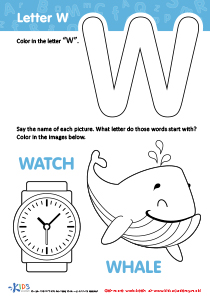Reading comprehension Normal Grade 3 Phonics Worksheets
9 filtered results
-
From - To
Explore our engaging Reading Comprehension Normal Grade 3 Phonics Worksheets, designed to boost your child's reading skills! These worksheets blend phonics practice with comprehension exercises, ensuring young readers grasp essential concepts while developing their decoding abilities. Your students will enjoy fun activities that challenge them to understand texts, build vocabulary, and enhance critical thinking. Each worksheet aligns with educational standards to provide a comprehensive learning experience suitable for Grade 3 learners. Perfect for classroom use or at-home practice, these resources will help cultivate a love for reading while promoting literacy skills essential for academic success. Unlock your child's potential today!
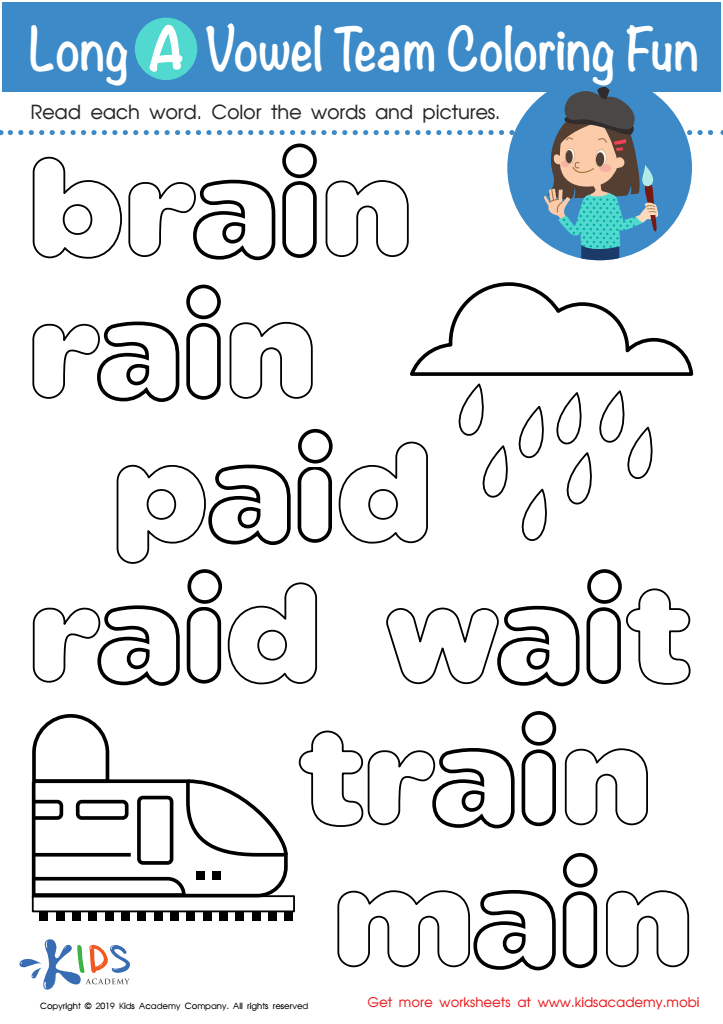

Long A Vowel Team Coloring Fun Worksheet
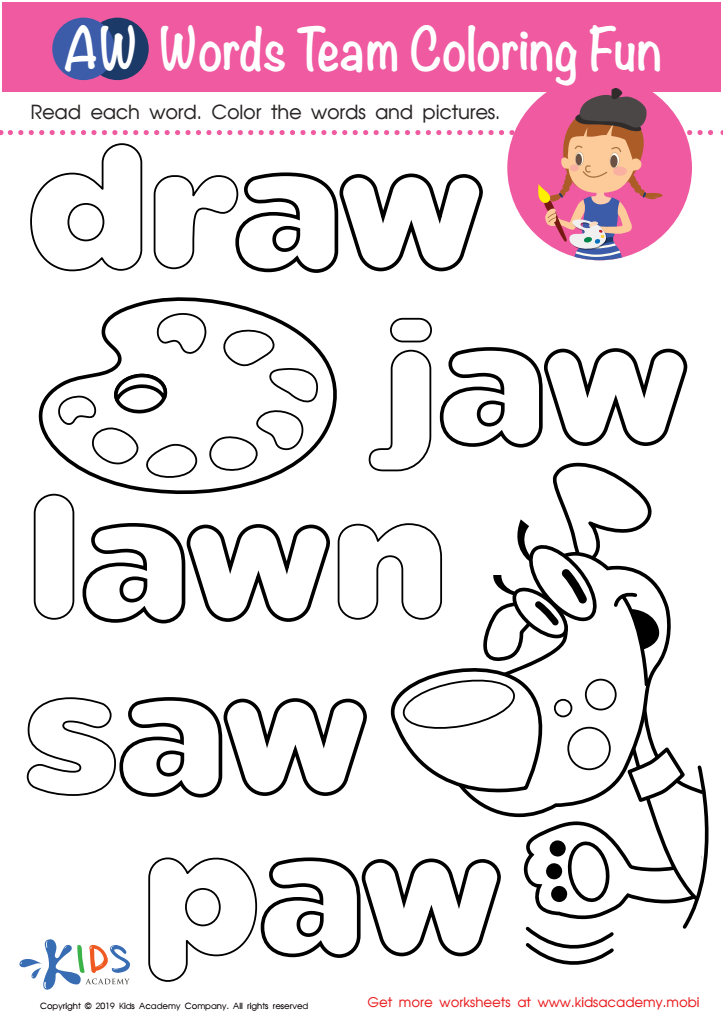

AW Words Team Coloring Fun Worksheet
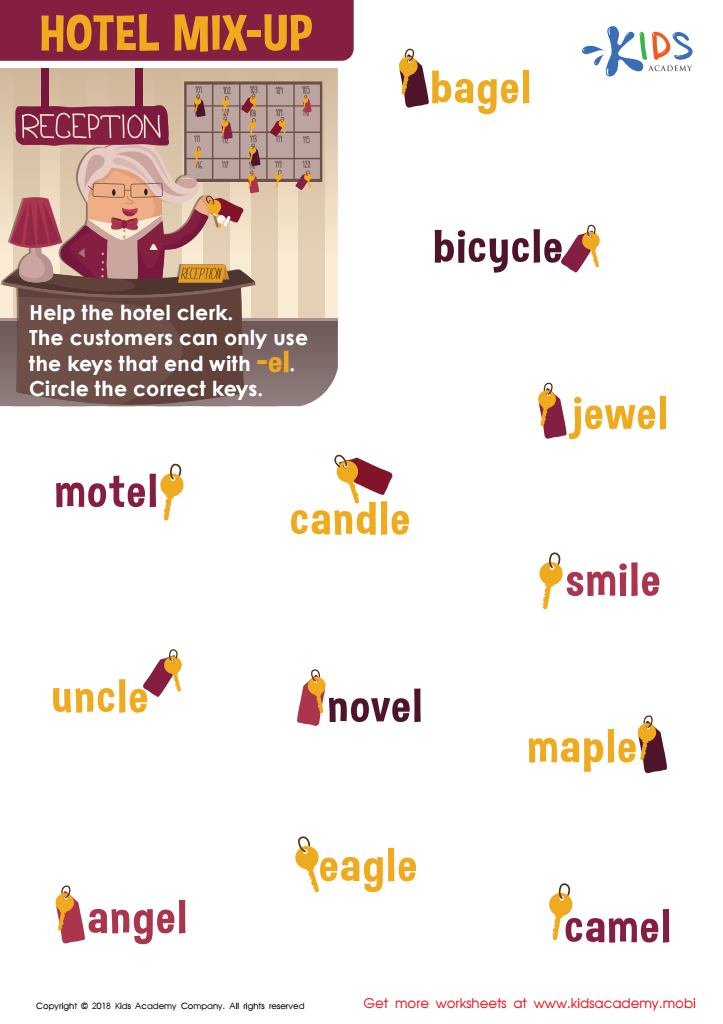

Hotel Mix-up Worksheet
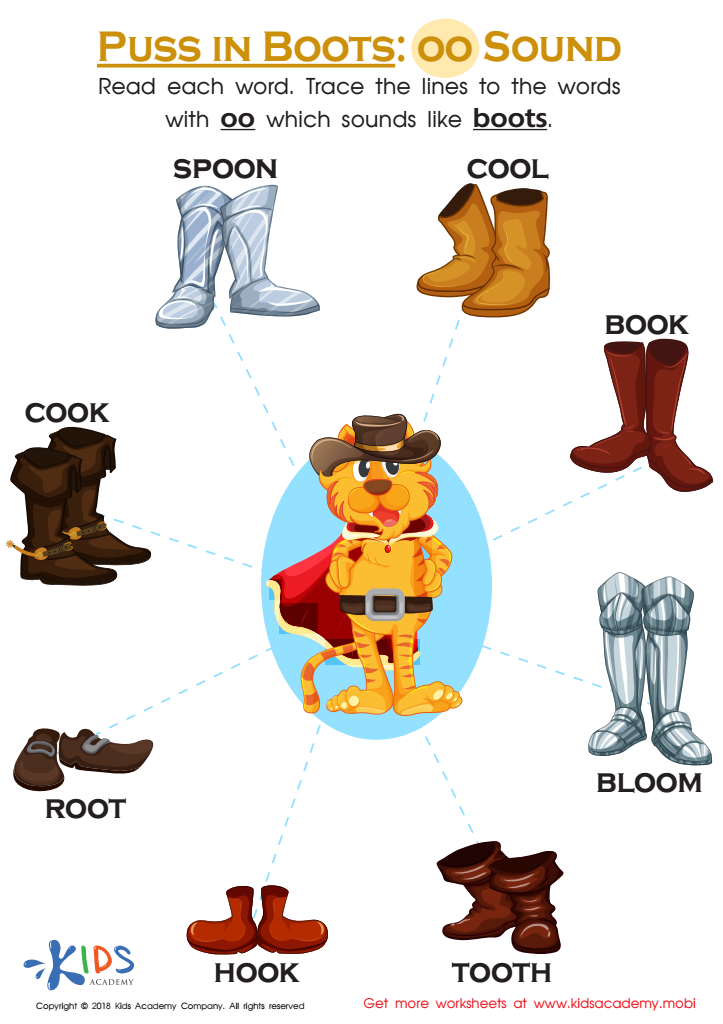

Puss in Boots: OO Sound Worksheet


Phonics and Word Recognition: Assessment 3 Worksheet


Phonics and Word Recognition: Assessment 1 Worksheet
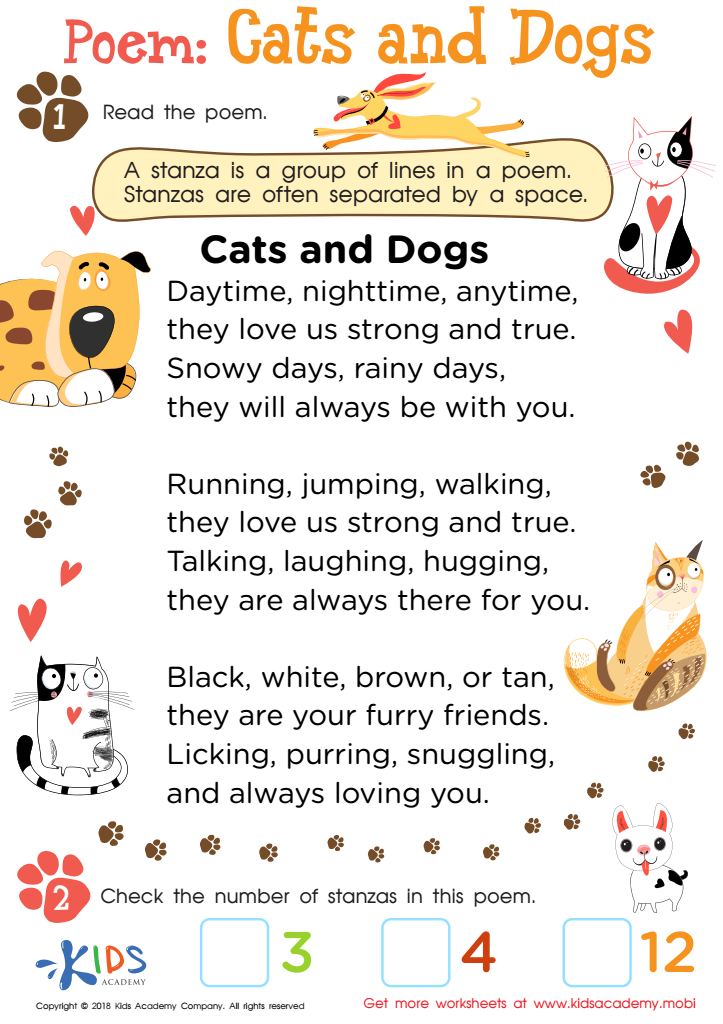

Poem: Cats and Dogs Worksheet


Long and Short E Worksheet


Phonics and Word Recognition: Assessment 2 Worksheet
Reading comprehension and phonics are critical aspects of literacy development in Grade 3, a pivotal year for young learners. At this stage, children transition from “learning to read” to “reading to learn.” This shift makes understanding phonics— the relationship between sounds and their corresponding letters—essential for effective reading.
Parents and teachers should care about these components because strong reading skills are foundational for academic success across all subjects. Proficient readers can better understand and engage with complex texts, leading to improved performance in mathematics, science, and social studies. Furthermore, reading comprehension fosters critical thinking skills, allowing children to analyze, infer, and draw conclusions.
Effective phonics instruction enhances children's ability to decode words, increasing their reading fluency and confidence. When students struggle with reading at this level, they can become discouraged, affecting their motivation and self-esteem. Early intervention through targeted phonics strategies can prevent future difficulties and promote a positive attitude toward reading.
By promoting strong reading comprehension and phonics skills, parents and teachers can help cultivate lifelong learners, preparing students for future academic challenges and ensuring they have the necessary tools for success in an increasingly complex world.
 Assign to My Students
Assign to My Students




